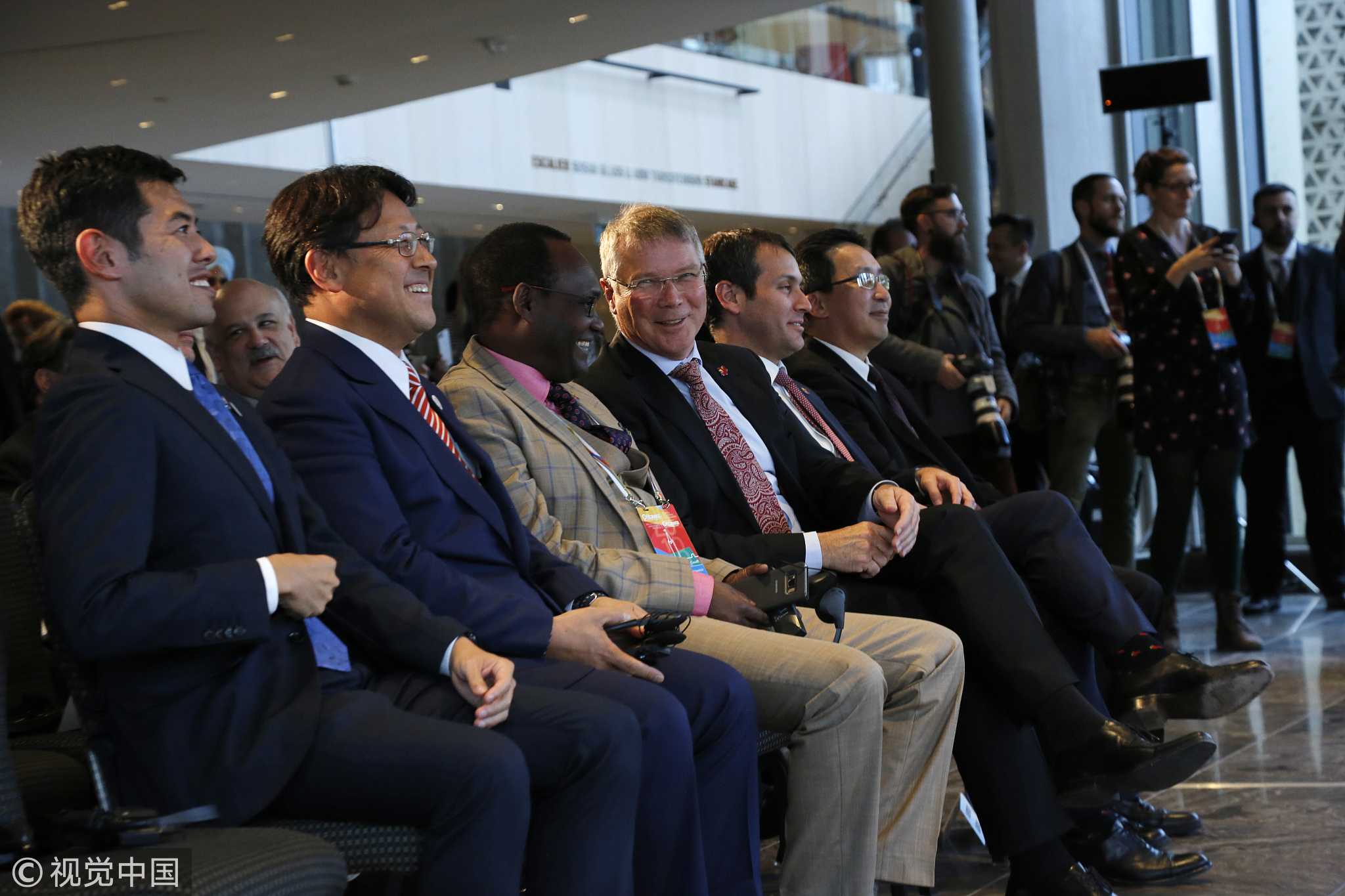
Opinions
16:40, 16-Jan-2019
Opinion: The West has itself to blame for its economic problems
Updated
19:48, 17-Jan-2019
Ken Moak

Editor's Note: Ken Moak, who taught economic theory, public policy and globalization at the university level for 33 years, co-authored a book titled "China's Economic Rise and Its Global Impact" in 2015. The article reflects the author's opinion, and not necessarily the views of CGTN.
The U.S. and the UK were right in promoting globalization, focusing on unfettered international trade and investment as the engine of economic growth in the post-World WarII order. It did bring the world closer and expand the global economy before the Great Depression, which in part was caused by protectionism.
However, the U.S. and its allies “abused” globalization by writing the rules in their favor. Not only was that unfair but also proved unsustainable. Western “abuses” might have prompted developing nations such as China and India to chart their own development path. China's “socialism with Chinese characteristics,” for example, propelled its economy to become the world's second largest within 40 years.
Indeed, increasing numbers of less developed economies in Africa, Latin America and other regions are joining China's successful Belt and Road Initiative (BRI) to develop their economies. Many European countries also seem to think China might be their economic “savior,” in that countries like Italy, the Netherlands, Finland and others are embracing the BRI.
On the other hand, the West's economy has been plagued by persistent slow economic growth, high unemployment, rising poverty and other economic ills since the 2008 financial crisis.
The way the International Monetary Fund (IMF), the World Bank (WB) and the General Agreement of Tariffs and Trade (GATT) was structured and governed was meant largely to benefit the United States.

World Bank President Jim Yong Kim addresses the IMF and WB annual meetings in Nusa Dua, on Indonesia's resort island of Bali, October 12, 2018. /VCG Photo
World Bank President Jim Yong Kim addresses the IMF and WB annual meetings in Nusa Dua, on Indonesia's resort island of Bali, October 12, 2018. /VCG Photo
Holding around 17 percent of the IMF and the WB shares and voting rights effectively gave the U.S. control of the supranational institutions because 85 percent of votes were required to turn reforms into policies. This allowed the U.S. to manipulate the two institutions' policies.
To strengthen the U.S. control of the world trade and financial systems, the president of the WB was to be a U.S. national, nominated by the country's president. While the managing director position was given to a European, the U.S. was given veto power over IMF decisions.
The GATT, formed to replace the UK-proposed International Trade Organization, was to deal with tariffs on goods only. The representatives from the U.S. and Europe dominated if not monopolized the policy agenda.
Being the biggest shareholder and most powerful nation at the end of WWII, the U.S. dictated IMF and WB policies. For example, it insisted that the supranational financial institutions operated as a commercial bank instead of a development one as proposed by the UK. This meant that the IMF and the WB must look after their shareholders' interests first, explaining the banks' harsh loan conditionality indicated in my past articles.
Requiring borrowers to repay loans before spending on economic development and adopt austerity measures effectively precluded borrowers' from using the funds to develop their economies. For example, countries like Chad, Argentina and others often needed another loan to repay outstanding ones, with very little if any of the borrowed funds for economic recovery.
The U.S. and allies were equally “self-serving” in writing the rules and regulations under the GATT framework. Barring developing nations from participating in the first six rounds of negotiations on tariffs and non-tariff barriers (NTB) gave the West a “free ride” in writing tariff and trade rules. For example, the West reduced tariffs only on goods in which it enjoyed a comparative advantage or those the emerging markets could not produce.

Ministers attend the Ottawa Ministerial for World Trade Organization Reform in Ottawa, Ontario, Canada, October 25, 2018. /VCG Photo
Ministers attend the Ottawa Ministerial for World Trade Organization Reform in Ottawa, Ontario, Canada, October 25, 2018. /VCG Photo
When tariffs were not enough, the West applied NTBs such as national security, quotas and others to keep out massive imports. For example, the U.S. often arbitrarily applied national security to impose tariffs on imported steel and aluminum as during the George W. Bush, Obama and Trump administrations.
At the last rounds of negotiations under the GATT framework, the Uruguay Rounds, members approved expanding the number of trade items to include services. Since GATT was mandated only to deal with trade in goods, a new organization was deemed necessary to replace it, culminating in the formation of the World Trade Organization (WTO), which was intended to negotiate a multilateral trade agreement, establishing the Doha Round in 2001 to allow every member equal participation in writing the rules.
However, because of colliding interests between the West/Japan and the developing economies, none of the issues has been resolved, largely over agricultural subsidies, foreign investment conditions, intellectual property rights protection timelines, etc. To that end, the Doha Round is suspended indefinitely, leaving the WTO and quest for a multilateral trade agreement in limbo.
The fact of the matter is globalization did benefit the world: lifting hundreds of millions out of poverty in the developing world; increasing the standard of living in the West; preventing major wars; just to name a few. Of course, globalization has also brought costs: climate change, widening of the wealth gap; etc. But most economists would agree that globalization benefits the world more than it costs it.
Until 2008, the U.S. and its allies indeed enjoyed stable economic growth, averaging around 3 percent annually, according to the IMF. They also wrote the rules of the global trade and financial systems. However, their “golden era” ended due to reckless financial management behavior, which caused the 2008 financial crisis. Western countries have themselves to blame for the conundrums.
(If you want to contribute and have specific expertise, please contact us opinions@cgtn.com.)

SITEMAP
Copyright © 2018 CGTN. Beijing ICP prepared NO.16065310-3
Copyright © 2018 CGTN. Beijing ICP prepared NO.16065310-3